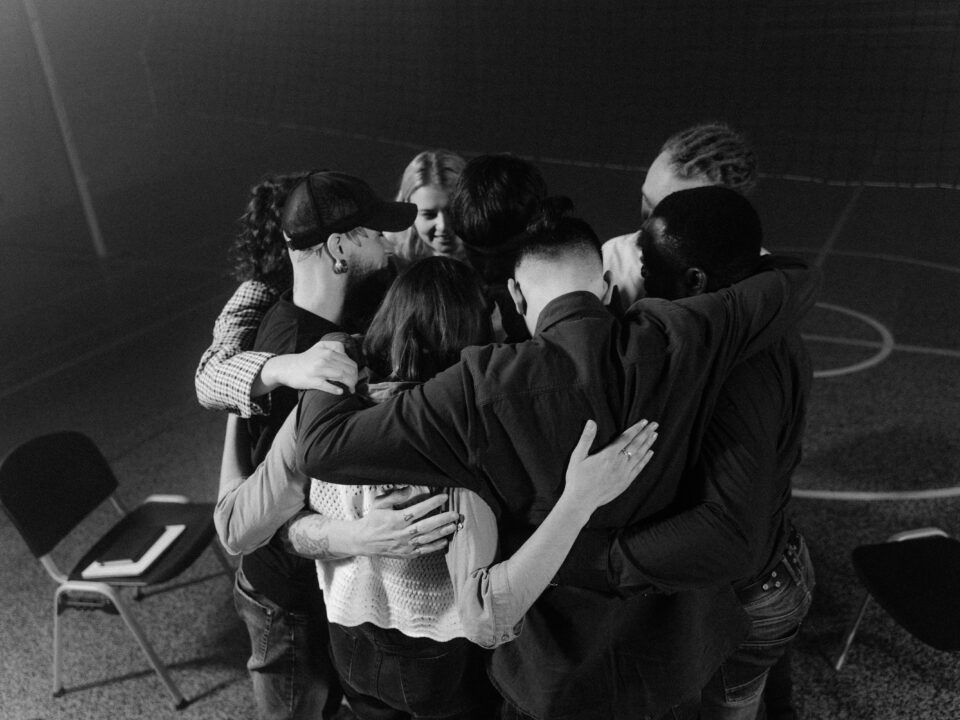
Why First City Mental Health Is a Trusted Resource in Kokomo, Indiana
November 12, 2025
Understanding the Power of Proper Medication Management at First City Mental Health
November 13, 2025At First City Mental Health, we believe that recovery is more than just managing symptoms—it’s about empowering individuals to handle life’s challenges with confidence and purpose, ultimately supporting good mental health. By learning effective coping strategies, patients can better cope with daily stresses and challenges, improve their emotional regulation, strengthen relationships, and regain control over their daily lives. This guide explores practical ways mental health patients can build resilience and enhance their well-being through proven coping techniques.
Key Takeaways: Why Coping Skills Matter
- Empowerment: Coping tools help patients regain control of their emotions and decisions.
- Prevention: Proper strategies reduce relapse and prevent crisis episodes.
- Confidence: Learning to self-regulate builds self-esteem and motivation.
- Connection: Shared coping practices strengthen bonds with family and peers.
- Resilience: Effective coping fosters adaptability and hope in recovery.
- Positive Emotions: Developing strong coping skills helps individuals experience more positive emotions, which supports overall well-being and mental health.
What is Emotional Recovery in Mental Health?
Question: What is Emotional Recovery in Mental Health?
Answer: Emotional recovery in mental health is the process of healing from emotional distress, trauma, or mental illness by rebuilding self-awareness, stability, and resilience. It involves learning to manage emotions, developing healthy coping skills, and regaining a sense of balance and purpose in daily life.
Understanding the Importance of Emotional Coping
Coping strategies are essential tools that help individuals manage stress, anxiety, and overwhelming emotions. When taught in a structured setting like First City Mental Health Kokomo In, these techniques provide patients with healthier ways to respond to challenges rather than avoid or suppress them.
Whether it’s through mindfulness, breathing exercises, or journaling, the goal is to equip each patient with personalized coping methods that work for their lifestyle and mental health needs, supporting their emotional well being.
Recognizing Everyday Challenges in Mental Health Recovery
Patients at mental health facilities often encounter barriers that make daily living more difficult—ranging from managing intrusive thoughts and mood swings to coping with trauma or isolation. These barriers can include difficulties with daily tasks such as self-care, work, or household responsibilities. The emotional weight of stigma or misunderstanding can also deepen the struggle.
Recognizing these daily stressors is the first step toward addressing them. Once patients understand what triggers their distress, they can begin to replace harmful responses with more constructive ones.
Identifying Stress Triggers and Emotional Patterns
One of the most valuable lessons taught in mental health facilities in Kokomo is self-awareness. Understanding personal triggers helps patients anticipate difficult moments before they escalate. Recognizing warning signs of emotional distress or relapse is crucial, as early identification allows individuals to seek help and prevent further issues.
Therapists often guide patients to recognize emotional patterns—such as withdrawing, overthinking, or reacting impulsively—and then use grounding or self-soothing exercises to stay centered.
This proactive approach builds self-control and reduces the risk of relapse or emotional burnout.
Exploring Risk Factors and Causes of Mental Health Challenges
Mental health problems and mental health conditions rarely have a single cause. Instead, they often develop from a combination of biological, environmental, and social risk factors that interact in complex ways. Recognizing these influences is a key part of mental health promotion and prevention, helping individuals and communities take proactive steps to improve mental health outcomes.
According to the World Health Organization, mental health is shaped by multiple levels—ranging from individual genetics and early childhood experiences to family dynamics, community resources, and broader societal pressures. For example, a family history of mental disorders, exposure to trauma, social isolation, or ongoing stress can all increase the risk of developing a mental health problem. Environmental factors such as access to quality education, stable housing, and supportive relationships also play a significant role in either protecting against or contributing to poor mental health.
Ultimately, meeting mental health needs at every level—individual, family, and community—empowers people to prevent mental health conditions before they start and to build resilience when challenges arise. This comprehensive approach not only supports recovery but also lays the foundation for lasting well-being and emotional strength.
Techniques That Build Strong Coping Foundations
At First City Mental Health Kokomo In, professionals use evidence-based techniques to teach coping skills that are both practical and sustainable. These may include:
-
Cognitive Behavioral Therapy (CBT) – to challenge negative thinking patterns.
-
Mindfulness and meditation – to cultivate presence and calm.
-
Progressive muscle relaxation – to release physical tension.
-
Creative expression – using art, writing, or music to externalize emotion.
-
Self care practices – such as maintaining personal hygiene, setting boundaries, or taking time for relaxation.
-
Physical activity – including regular exercise or movement-based therapies to support mental health.
Each of these strategies contributes to greater emotional balance and improved self-awareness.
How Mental Health Facilities Near Me in Kokomo Indiana Empower Patients
Searching for mental health facilities near me in Kokomo Indiana often leads people to programs that focus not only on treatment but also on education and empowerment, while highlighting the importance of accessible mental health services for all individuals.
These facilities teach individuals how to integrate coping skills into daily life—whether that’s managing stress at work, setting boundaries in relationships, or staying motivated during difficult days.
The emphasis is always on long-term wellness, helping patients build independence rather than reliance. A range of treatments, including therapy and medication, are available to support recovery.
The Role of Support Systems in Recovery
No one should face mental health challenges alone. The best inpatient mental health facilities in Indiana recognize that recovery flourishes in a supportive environment. Family therapy sessions, peer support groups, and community activities help individuals feel connected and understood. Caregivers also play a crucial role in supporting recovery by providing encouragement, psychoeducation, and ongoing support throughout the healing process.
Having a reliable network can make a significant difference when patients are learning to apply their new coping tools outside of therapy.
Building Mind-Body Connection for Lasting Balance
Coping isn’t only mental—it’s also physical. Many programs at First City Mental Health in Kokomo include activities like yoga, deep breathing, or walking therapy to reinforce the link between body and mind. Mental and physical health are closely connected—improving one often leads to benefits in the other, so integrating strategies that support both is essential for overall well-being.
These physical practices help reduce cortisol levels, improve focus, and promote emotional regulation. Patients often report sleeping better, feeling calmer, and gaining more energy after consistent practice.
Implementing Healthy Routines and Habits
The most effective coping strategies are those that become habits. Daily structure, consistent sleep schedules, nutritious meals, and regular exercise are cornerstones of emotional wellness.
Therapists at First City Mental Health encourage patients to track their moods, set small goals, and celebrate progress. These routines not only prevent relapse but also provide a sense of stability and control. Establishing healthy habits also supports ongoing personal growth by fostering self-improvement, resilience, and emotional well-being.
Conclusion
Coping skills are more than techniques—they’re pathways to freedom, resilience, and emotional strength. At First City Mental Health in Kokomo Indiana, every patient is guided to discover their unique strengths and use them to overcome life’s hurdles.
Through structured support, therapy, and daily practice, recovery becomes not just possible but sustainable, laying the foundation for lasting mental well being. Whether you’re beginning your journey or supporting a loved one, remember that effective coping starts with the courage to take the first step toward healing.
Frequently Asked Questions
What are coping skills in mental health?
Coping skills are strategies individuals use to manage stress, emotions, and life challenges in healthy ways, helping them stay balanced and resilient. Coping skills are important for managing common mental health conditions such as depression and attention deficit hyperactivity disorder.
Can coping skills be learned at any stage of recovery?
Yes. Whether someone is newly diagnosed or managing long-term recovery, coping techniques can be adapted to suit their personal journey. Coping skills can be beneficial for people with any mental illness or mental health condition, and early intervention is key to improving outcomes.
How do I know which coping strategies work for me?
Mental health professionals at First City Mental Health Kokomo In guide patients in identifying and practicing different techniques until they find the most effective ones. The process often involves strengthening protective factors and working to reduce risk factors. Coping skills can help young adults, older adults, and those at higher risk due to biological or structural factors.
Are coping skills enough without medication?
While coping skills are valuable, many individuals benefit most from a combination of therapy, medication, and lifestyle changes under professional supervision. For some individuals, especially those with substance use or substance abuse issues, self harm, or severe psychological or emotional distress, a combination of treatments and mental health care is often necessary.
How long does it take to see improvement after learning coping skills?
Progress varies per individual, but consistent practice often leads to noticeable improvements in mood, stress levels, and daily functioning within a few weeks. Positive functioning, social well being, and emotional learning are all supported by consistent use of coping skills.






